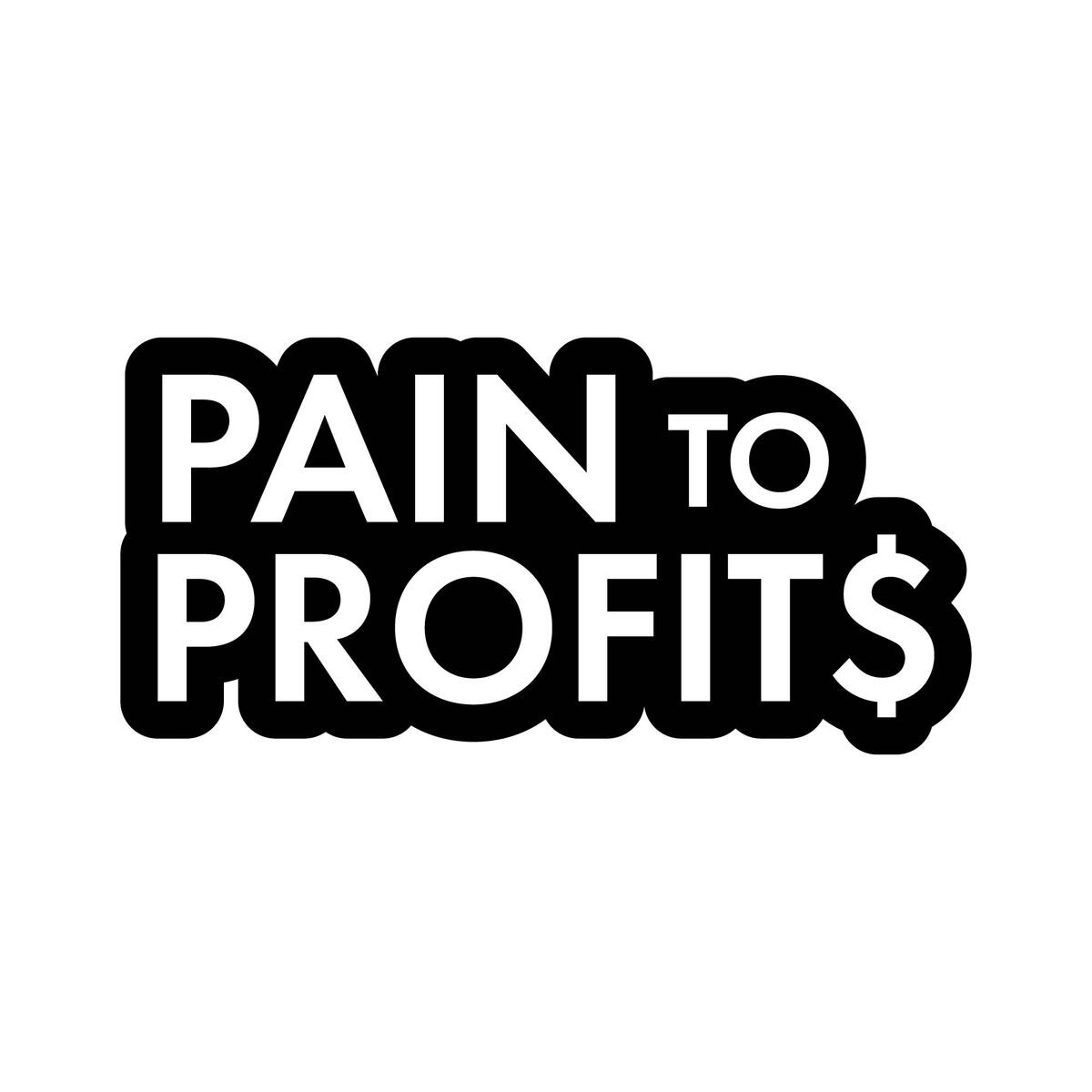Learn how to make AI work for you.
AI breakthroughs happen every day. But where do you learn to actually apply the tech to your work? Join The Rundown — the world’s largest AI newsletter read by over 600,000 early adopters staying ahead of the curve.
The Rundown’s expert research team spends all day learning what’s new in AI
They send you daily emails on impactful AI tools and how to apply it
You learn how to become 2x more productive by leveraging AI
Pain Points Podcast
Your Favorite Entrepreneurs Can Change America Before It's Too Late
To whom much is given, much will be required (Luke 12:48)
For the last 40 years, we believe entrepreneurs have become far too complacent in societal roles beyond making money and providing jobs. The significant influence and responsibility entrepreneurs hold was inspired by the Declaration of Independence’s Creators -primarily business-minded individuals. Beyond personal success, we must preserve and enhance the system that gave us so much.
PUL$E
The Creature From Jekyll Island
The Federal Reserve, commonly known as the Fed, is an institution shrouded in both mystery and controversy. Its dual nature, straddling both public and private domains, fuels debates about its role and influence over the U.S. economy. The Fed's creation, as chronicled in G. Edward Griffin's "The Creature from Jekyll Island," suggests a narrative rife with secrecy and conspiracy, hinting at a system designed to serve elite interests. This historical backdrop provides a compelling context for understanding why former President Donald Trump might desire to exert control over the Federal Reserve.
Griffin's book posits that the Federal Reserve was born out of a clandestine meeting on Jekyll Island in 1910, involving powerful bankers and politicians who crafted a central banking system that would cater to their interests. According to this perspective, the Fed enables a small group of private bankers to wield considerable control over the U.S. monetary system, manipulating money supply and interest rates to their advantage. This control ostensibly results in economic cycles of booms and busts, inflation, and a debt-based economy, all orchestrated for the benefit of those in the know. The Fed's capacity to create money out of thin air, as Griffin argues, devalues currency and disproportionately impacts the general populace, making the institution a focal point of financial and political power.
Despite its controversial origins and functions, the Federal Reserve is not a government agency in the conventional sense. Established by the Federal Reserve Act of 1913, the Fed is an independent entity within the government, designed to be free from direct political influence. Its structure includes the Board of Governors, a federal government agency with members appointed by the President and confirmed by the Senate, and 12 regional Federal Reserve Banks, which operate independently and are structured like private corporations. This unique setup allows the Fed to manage the nation's monetary policy with a degree of autonomy, shielded from the political pressures that typically influence other government agencies.
However, this independence is precisely what makes the Fed a target for political figures like Donald Trump. During his presidency, Trump frequently criticized the Fed, particularly over its interest rate policies, which he believed hindered economic growth and his administration's objectives. His desire to exert control over the Fed likely stemmed from a broader strategy to align monetary policy with his economic agenda, particularly his goals of stimulating economic growth and maintaining low interest rates.
Control over the Federal Reserve would grant any president significant influence over the economy, enabling the implementation of policies that could drive economic expansion and boost political capital. For Trump, whose presidency was heavily focused on economic performance, gaining leverage over the Fed would mean the ability to directly impact interest rates, inflation, and overall economic stability. This control could facilitate a more favorable economic environment for his administration, potentially boosting market confidence and voter support.
BRAND DAMAGE
GenZ wants to get dirty?

While AI is getting a lot of the attention, Gen Z is undergoing a radical but not surprising shift toward the trades.
Why?
Put simply. The high cost of college education, job security, and competitive salaries of the trades are driving the trend.
Here is a more thorough but brief breakdown of what they’re considering:
Financial Considerations
College Costs: Public college tuition averages $27,020 annually; private colleges are $42,162.
Student Debt: Student loan debt in standing at ranges $30K-$50K for 4-year university graduates.
Declining Enrollment: College enrollment fell by 14.7% from Fall 2020 to Spring 2022, and 9.8% since 2010.
Long-Term Appeal
Increased Enrollment: Trade program enrollment rose by 16% in 2023, with a 23% increase in construction trades.
Salaries: Skilled tradespeople earn an average salary of $73,117.
Entrepreneurial Opportunities: 50% of Gen Z aims to own businesses; one in six skilled tradespeople become entrepreneurs.
Job Security
AI Impact: Jobs requiring vocational degrees are 38% exposed to AI automation, compared to 75% for jobs needing four-year degrees.
So how can your business leverage this change in recruiting?
Here are three things to be aware of…
Gen Z Attention Getters: They value career growth, societal impact, and strong employer branding.
Social Media Audiences: Gen Z spends over four hours daily on social media. Companies should leverage this by showcasing their company’s mission, people, and culture through authentic, original, and engaging content.
Staffing Partnerships: Partnering with staffing agencies can streamline recruiting Gen Z workers through established talent pipelines.
This trends is positive one for fans of American capitalism and those who understand the significance of SMB’s within our economy.
Let the rise of humble entrepreneurship commence!
For more details, you can read the full article from Labor Finders that inspired this feature here.
Xcelerated Performance
Break Your Negative Thinking
Help a fellow entrepreneur level up by forwarding this email.
➡️Subscribe to our podcast Apple Podcast | Spotify | YouTube




